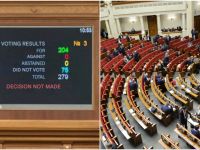Executives and analysts are questioning whether Israel’s energy industry has a future after the country’s antitrust chief backtracked on letting a group led by U.S.- based Noble Energy Inc. develop Israel’s two biggest natural gas fields. Antitrust Commissioner David Gilo said this week he was reconsidering his March 14 decision to let the partnership retain its stakes in the Leviathan and Tamar reserves if it would sell smaller fields. Gilo said he was considering declaring the consortium a monopoly, a move that may require the owners, including Israel’s Delek Group Ltd., to sell one of the fields.
While Gilo’s move is designed to protect consumers from potential price collusion, critics accuse the regulator of jeopardizing investment by changing rules mid-game.
“A new and increasingly likely scenario should be considered: the premature – and tragic – death of the Israeli gas dream,” said Gal Luft, senior adviser to the Washington, D.C.-based United States Energy Security Council, in an email.
Israel’s failure “to present a clear vision for the country’s energy sector, articulate the rights and responsibilities of foreign investors and most importantly set rules and stick to them” could “leave the gas in the ground,” Luft said.
Australia’s Woodside Petroleum Ltd. already scrapped an agreement in June to buy a stake in Leviathan, citing concerns over the regulatory atmosphere in Israel. After Tamar and Leviathan were discovered, the government passed new legislature nearly doubling the taxes on gas and oil profits, and capping the amount of fuel that could be exported.
“The actions of the Antitrust Authority are another disturbing example of the uncertain regulatory environment in Israel,” Noble Chairman Charles Davidson said. “We believe this is a harmful precedent for Israel to set and we will vigorously defend our rights relating to our assets.”
Gilo has not announced a definitive decision, and any reversal could be subject to a court hearing, so it is unclear how things will develop.
“There are many voices pulling in very many directions because of the different interests,” said Roni Biron, an analyst at UBS AG in Herzliya, Israel. “It remains to be seen how all of this will pan out.”
Tamar and Leviathan are among the biggest natural gas finds in recent years and have provided Israel with enough fuel for decades of energy self-sufficiency and export. Noble is the only foreign energy company to heavily invest in Israeli gas, despite U.S. Geological Survey estimates that the Levant Basin off the country’s Mediterranean coast holds about 122 trillion cubic feet of gas, about three times what has been found.
“There is no additional international player in Israel other than those already active, and there are none on the horizon,” Gideon Tadmor, CEO of Avner Oil Exploration Ltd., said last week.
“This is something the government must take stock of; how come it hasn’t managed to leverage the success of the industry to an international level?” said Tadmor, whose company is one of Noble’s Israeli partners.
Brenda Shaffer, a professor at the University of Haifa who specializes in oil and gas policies, said policymakers must recognize that Israel’s relatively small energy market can’t attract the kind of investment that larger markets can.
“Globally, expensive natural gas production projects are encountering commercial difficulties,” Shaffer said in an email. “Israel is trying to apply a U.S.-model gas market on a market the size of 10 U.S. congressional districts.”
Public rhetoric over the gas issue has been intensified by cost-of-living concerns that have become a prominent issue in March 17 parliamentary elections. Israeli Prime Minister Benjamin Netanyahu has instructed Eugene Kandel, chairman of the National Economic Council, to examine the implications of Gilo’s move.
Lawmaker Shelly Yachimovich of the opposition Labor party accused the Tamar and Leviathan partners of using scare tactics to avoid regulation that would benefit Israeli consumers.
“What we have here is a terrible failure of regulation,” Yachimovich said on Israel’s Channel 2 news, arguing the government should not have allowed a small group of companies to obtain control of the fields.
The gas companies constitute a cartel that is making excessive profits “off the backs of the public,” she said.
Amos Hochstein, the U.S. State Department special envoy and coordinator for international energy affairs, said regulatory uncertainty was discouraging foreign investment.
“If there is regulatory certainty and legal certainty which leads to contract sanctity, you will see more interest here,” Hochstein said last week.








